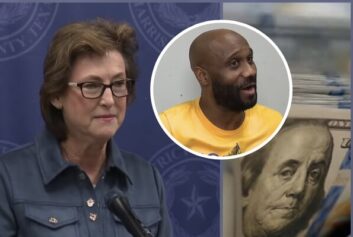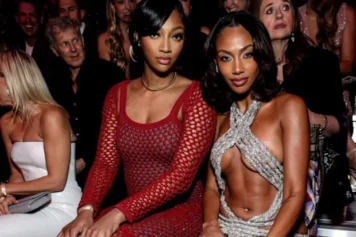I recall back in the ’90s when you could never get an African-American athlete on any level to speak out against issues that afflicted their fellow countryman. This was especially so when the discourse fell along the fault lines of race, class and culture.
Today, with each passing epiphany as to the inertia that was indicative of the struggle for freedom, justice and equality in this country, we find an increasing number of athletes willing to at least voice an opinion on racially insensitive matters.
That is something that wasn’t happening at the frequencies it currently is even a decade ago. The Shadow League has been an industry leader on the topic of activism in sports since our finding by media mogul Keith Clinkscales in 2012.
While most of our commentary has centered on professional NBA and NFL players, the Olympic Games has a history of Black protest. Do youngsters recall the protest of Tommie Smith and John Carlos during the 1968 Olympic Games as they stood upon the medal stand with fists adorned in black gloves and raised in Mexico City?
They were banished from Olympic competition and their medals stripped because they stood up for what they believed. Additionally, there was a push to have all black athletes boycott the Olympic Games organized by sociologist Dr. Harry Edwards, but it failed to develop.

These Rio Olympics have an inherent charge of racial injustice built in. Brazil is home to the largest population of black people in the world outside of Africa. Darker skinned people tend to be among the poorest and most frequently arrested in Rio.
On Thursday, following her resounding Gold medal win, which made her the first African American woman individual medal winner in swimming history, Simone Manuel responded with the following when asked about the importance of her medal to the United States: “It means a lot, especially with what is going on in the world today, some of the issues of police brutality. This win hopefully brings hope and change to some of the issues that are going on. My color comes with the territory.”
It is something Ive definitely struggled with a lot, Manuel said. Coming into the race I tried to take weight of the black community off my shoulders. Its something I carry with me. I want to be an inspiration, but I would like there to be a day when it is not, Simone, the black swimmer.”
On its face, Manuel’s comments don’t seem like a big deal. But they’re a rather patriotic and realistic view of our contemporary circumstances in America. Why are they actually a big deal? Simply saying such a thing means she is aware. In the past, aware athletes have found themselves as unemployed, unsponsored and unendorsed.
However the exponential nature of inspiration means one action has ripple effects and inspires an untold number of individuals. Obviously buoyed by the legacies of long ago forefathers like John Carlos and Tommie Smith, and inspired by LeBron James’ recent examples, young athletes from many sports will likely feel more comfortable speaking out in the future.
With many events still slated to occur, who knows where the next burgeoning spokesperson for racial justice lies, or when they will appear.



